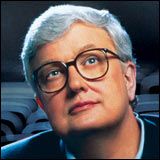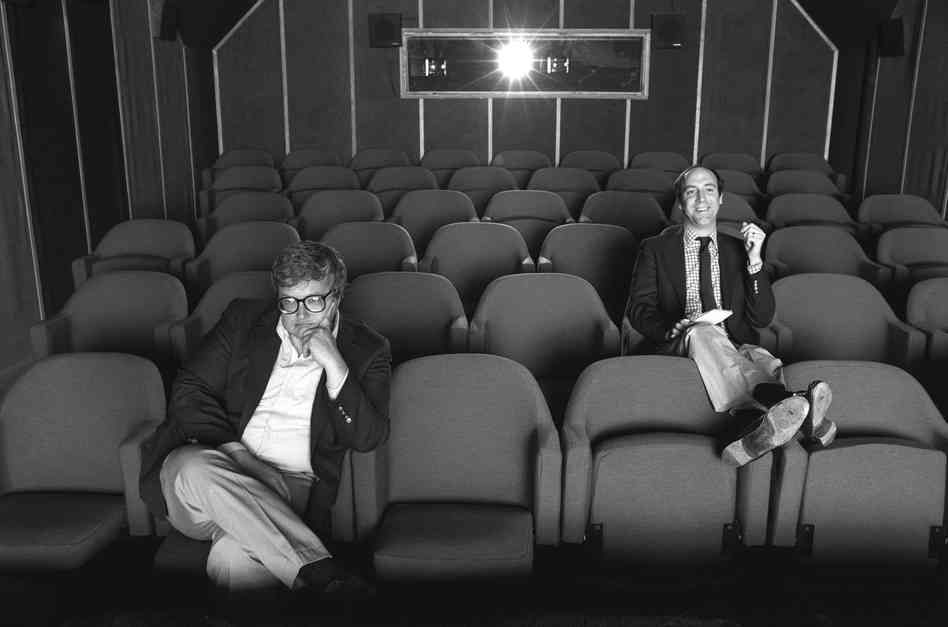This is what Life Itself filmmaker Steve James and Chaz Ebert, the widow of probably the most famous film critic of an age, would call a "Roger story." As an introduction, it's bit of a digression, but that never stopped Ebert himself.
Twenty years ago, when I was still quite fresh to Los Angeles, I was a young reporter and editor working at a newspaper in Beverly Hills, and one of the weekly highlights of my various duties was to lay out Roger Ebert's syndicated movie review column, picking and choosing the reviews that were most relevant to the audience and, frankly, would fit or fill whatever ever-shifting space the paper allowed. It was, frankly, a treat to take an hour or so each week to immerse myself in Ebert's precise, eloquent and very personal prose, and when I spotted the critic himself for the first time while attending my first Academy Awards press room I felt compelled to tell him as much, and was utterly bowled over at how warmly Ebert received the information and how intently interested he was in what I'd imagined was probably a very mundane little corner of his career -- but the newspaper, he told me, was (in the pre-Internet age) his single Los Angeles-area outlet and, as a result, his primary means of getting his reviews to the eyes of the people who actually made the movies he was writing about.
In that small exchange -- which primarily blew me away because he'd immediately treated me like a valued colleague and not some easily brushed off fan or neophyte journalist -- Ebert's passion for his craft, at that point already three decades into his career, was as palpable in person as clearly as it ever was on the page, and not just his enthusiasm for appraising cinema: his status as a dyed-in-the-wool newspaperman who wanted his words to get under the noses of the readers who most needed to see them shone brightly, as did his eagerness to make sure the Hollywood machinery took note of his comments -- his praise, his support, his critiques, his prodding and his scolding -- and in doing so, serve the movie-going audience with, one hoped, better films. This was a man who absolutely loved what he was doing with his life.
I got to experience that side of Ebert in a personal exchange in just a few moments. Now, thanks to Life Itself, the film audience that valued the critic's perspective get to share in an even fuller expression of exactly who he was and what he was about. Shot by documentarian James, the filmmaker behind Hoop Dreams (a film Ebert championed early on, from obscurity to awards ceremonies) and loosely based on the writer's 2011 memoir, it is an unflinching, warts-and-all look at America's best known and most beloved film critic just prior to his death in 2013, at a time when he was perhaps at his most reflective: cancer had resulted in the removal of a portion of his jaw and left his unable to speak, but in another sense his voice had grown louder and clearer than ever as his writing took on a genuinely transcendent tone.
The film vividly documenting Ebert's colorful backstory -- his emergence from blue-collar upbringing as a precocious wordsmith; his stint a conscientious, surprisingly crusading collegiate journalism student; his dichotomous existence as an eloquent and high-minded film critic who was also no stranger to the hard-drinking, late night life of a Chicago newsman; his somewhat lonely, isolated personal life, until meeting and marrying Chaz and embracing a new, fully formed family; his dabbling as a Hollywood screenwriter, under the mentorship of bosom-worshipping filmmaker Russ Meyer; his intense, long-simmering rivalry with fellow critic Gene Siskel, resulting in an often contentious partnership in which the sparks that ignited between them on their initially tiny TV series would fan flames that would turn them both into the preeminent film journalists of their era and, eventually, grudgingly turn into something resembling a deep, though still spiky bond of friendship; and, of course, Ebert's lifelong love affair with the movies.
But Life Itself also captures Ebert as he endured near-constant and extreme health problems, revealing just how much physical duress he was enduring, even as he was producing some of his most affecting writing. Walking through his history alone would put a very human face on him -- ever more human, anyway, given how his writing offered a window into his psyche -- but watching Ebert and his family handle the onslaught of medical efforts to contain his ills in the now is startling illuminating. Yes, there are moments when his frustrations bubble to the surface, but the Ebert that emerges predominately is a man who has made peace with his life, his history, his success and his failures. Ailing as he is in the film, he still seems almost brimming with life force, a man who has a keen perspective on his own mortality and is largely focused on making the most out of each moment, and especially out of each word -- perhaps because he knows that's where his immortality really lies.
As an overview of the genuinely fascinating and engaging man behind the icon the public embraced so enthusiastically, the film effectively and successfully communicates who Roger Ebert was. But Life Itself becomes genuinely transcendent in its delicate yet unblinking portrayal of Ebert's approaching death, which it handles as deftly as the depiction of his life -- more celebratory than elegiac. And for that, it deserves its subject's signature style of praise: one very enthusiastic thumbs up.
Life Itself is in theaters now.


